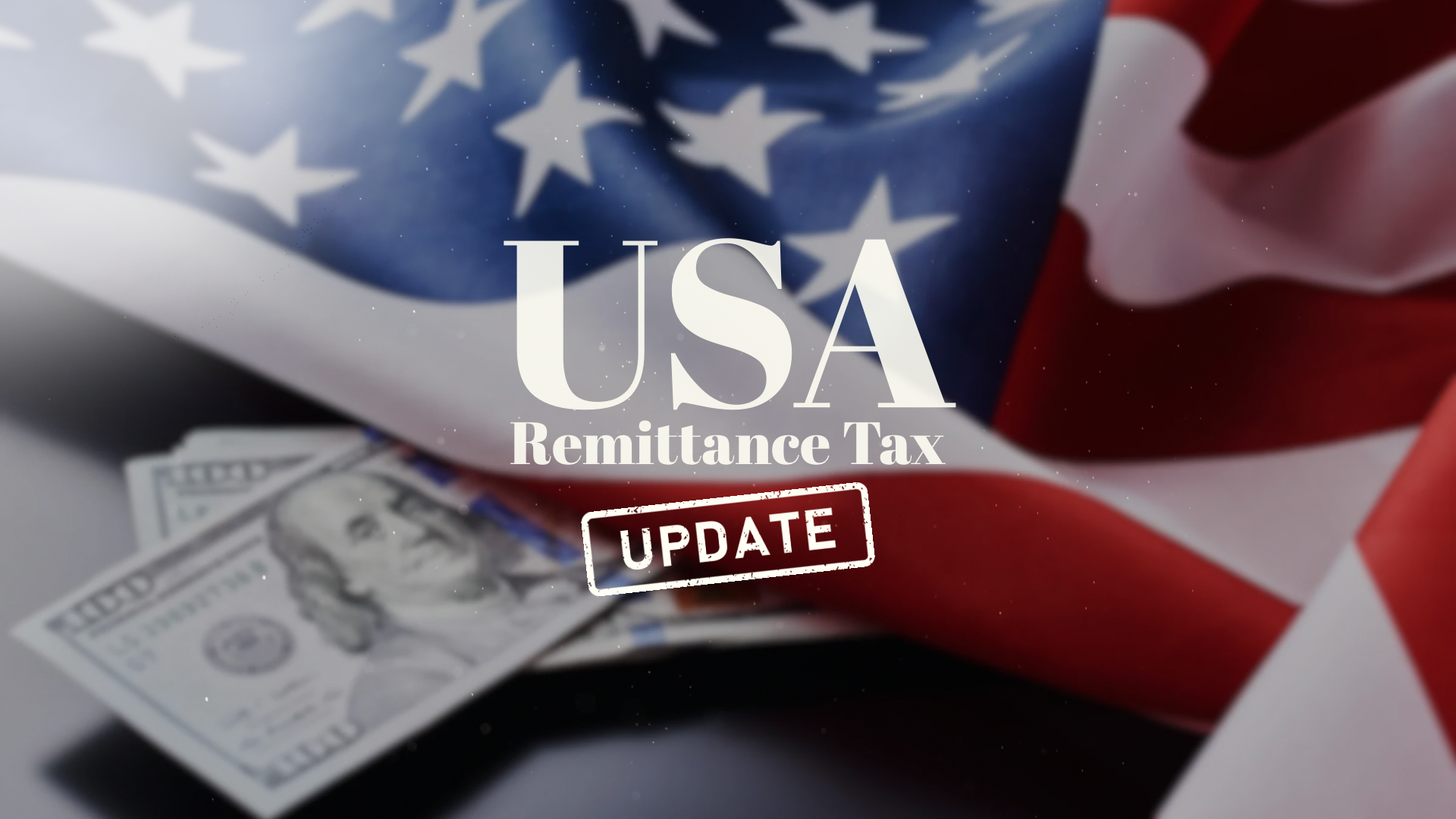Let us start with this: if you’re working, studying, or living in the US and sending money back home, this change matters. The new US remittance tax has been reduced from a potential 5% to 3.5%, and now stands at only 1%, to target non-citizen immigrants. This is huge news for people all over the world.
Let’s break this down nice and easy!
What Exactly Is the US Remittance Tax?

This tax is part of the “One Big Beautiful Bill” that was pushed through the US Senate on July 1, 2025, and is now headed to the House. Initially pitched at 5% and later at 3.5%, the Senate reduced it to just 1%.
Who pays for it? All non-citizens—that includes green card holders, visa holders like H‑1B, F‑1 students, even undocumented immigrants—when sending remittances abroad. US citizens and nationals aren’t taxed, but everything else is on the table.
The goal? Raise around $10 billion over 10 years, down from the House’s estimate of $26 billion if 3.5% had stayed. Sounds small, but add up big transfers over time, and it’s not trivial.
How It Works and What’s Exempt
To keep it simple: any cash-like transfer (bank wire, ACH, prepaid cards) by a non-citizen may see 1% withheld. Cryptocurrency is not covered under the Senate version.
Here’s where a lot of immigrants get relief:
- If you send money via US-based bank accounts or with a US-issued debit/credit card, you’re likely exempt.
- That means if you’re like most immigrants using mainstream platforms—Wise, Remitly, Western Union, or bank wire through your US checking account—you probably won’t pay this 1%. But it’s essential to confirm the funding source with your provider.
- Still, if you use prepaid cards, informal cash transfers, or don’t use a US debit or credit card, the 1% tax applies.
Who This Really Impacts
Think broadly:
- Visa holders (H‑1B, F‑1/OPT, L‑1, etc.)
- Green card holders
- Undocumented immigrants
- International students earn stipends or part-time income and send money home.
Even business remittances, such as paying suppliers or purchasing inventory abroad, could fall under this category. If you’re in the US on any non-citizen status and sending funds out (including to your overseas accounts), be cautious.
Why It Matters, Especially to Indians and All Immigrants
If you’re from India, remittances often go toward:
- Family support
- Real estate or investment
- Tuition or personal savings
- NRE/NRO deposits
The US has been the largest source of remittances to India, with nearly $100 billion in 2022. Even a small 1% tax on this volume adds up quickly.
However, immigrants from Mexico, the Philippines, Colombia, and other countries also send billions back home annually. This affects everyone. In fact, Mexico’s president even protested the original 3.5% tax.
Making Smart Moves Now
- Verify your transfer method. Always use a US-issued debit/credit or a BSA-reporting financial account to avoid the tax.
- Plan large transfers before January 1, 2026, when the tax takes effect.
- Talk to your remittance provider. Confirm that exemptions apply and that funds originate from the right source.
- Work with a tax advisor, especially if you send large sums or run a US-based business. Prepaid cards or non-bank transfers could incur the tax.
- If you send money using crypto, you’re off the hook, at least under the Senate’s language. But always watch legislation—it could change.
💡 Final Takeaways
- The US remittance tax has been reduced to 1%, but only for non-citizen immigrants sending money abroad.
- Using US bank accounts or debit/credit cards generally avoids this charge.
- Applies starting January 1, 2026.
- Affects everyone sending cross-border cash like NRIs, students, workers, undocumented folks.




